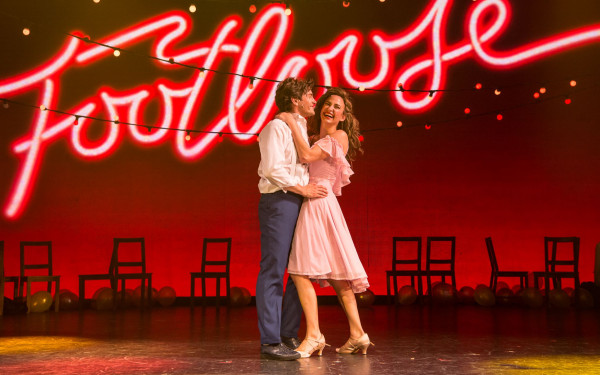The Impossible Comedy
Tuesday Night Cafe’s Adaptation of When Five Years Pass
Federico Garcia Lorca, best known for his poetry, was part of a group of poets called the Generation of ’27 which brought surrealism and futurism to Spanish writing in the mid 1920s.
Garcia Lorca was assassinated by Spanish Nationalists in 1936 for having outspoken socialist views at the start of the Spanish Civil War. Garcia Lorca’s play When Five Years Pass was never put on stage during his lifetime. Garcia Lorca himself referred to this play as the impossible comedy.
Tuesday Night Cafe Theatre’s most recent production of When Five Years Pass opened on Wednesday night, Feb. 15. The experimental theatre company is mostly run by McGill students who have a passion for theatre that pushes the boundaries.
The play follows the story of a Young Man who chooses to wait five years for his 15 year old lover to no longer be jailbait. He waits, impatiently, and when she turns 20 they meet again, except the Young Girl has decided that she does not love him anymore. The rest of the play revisits his childhood, adolescence and his old age and questions what he could have done better.
“There’s so much in this play,” said director Anna Lytvynova. “But the challenge was to choose a focus. I wanted to focus on temporality, death, and identity. It deals with huge concepts in a very theatrical way.”
Using an array of themes including love, loss, nostalgia for the past, the purity of one’s childhood, and trepidation of the oncoming future, the play had a lot to deal with. Along with a storyline that went back and forth, the play was hard to follow at times.
“It’s that idea that you have these dreams that you built up as a kid and then you slowly have to pare that down to something that’s realistic.”- Ryan Mernin
These fundamental themes of humanity are represented through different characters, 22 in all, played by a cast made up of only seven actors.
The costumes, along with the lighting, sound and set, are very simplistic. All of the characters, excluding Young Man and Old Man, are dressed in very tight black clothing. When the actors change character a small clothing swap is added to their costume; a blue scarf for Young Girl, a wedding dress for the Manikin.
“My character is very much someone who is struggling with the fact that he’s no longer a child, which I think everybody can relate to in some way or another,” said Ryan Mernin, who plays the role of the Young Man. “It’s that idea that you have these dreams that you built up as a kid and then you slowly have to pare that down to something that’s realistic.”
When Five Years Pass constantly jolts between scenes of serenity and scenes that are bordering on obnoxious. Flashbacks to the Young Man’s childhood are a severe change from the normal energy of the play. We are suddenly brought to a place strangely reminiscent of Shakespeare’s A Midsummer Night’s Dream.
The stage is bathed in a lovely but dim pinkish-white light. The children are nymph-like and speak in poetic verse. But as soon as we adapt to this cozy atmosphere we are jerked back into the world of the shabby and brass studio apartment. Back to reality.
Maybe Garcia Lorca intended for this harsh juxtaposition to demonstrate the absurdities of our innate human feelings.
The set itself is a shabby studio apartment with a single bed and a nightstand with two bottles of wine and three glasses, one half full. A worn out couch sits in the middle of the stage.
Sarah Foulkes, who plays the Manikin and Girl, felt that it was a challenge connecting to When Five Years Pass.
“It was very hard for me to figure out what the hell was going on, to be honest. With both the entire plot and within two lines,” Foulkes explained. “You have to make very big choices. It’s not a subtle play and you can’t play it in a subtle way.”
When Five Years Pass // Tuesday Night Cafe Theatre (3485 McTavish St.) // Feb. 22-25 // 7:45 p.m. // $6 for students OR $10 for general admission



2web_600_375_90_s_c1.jpg)


